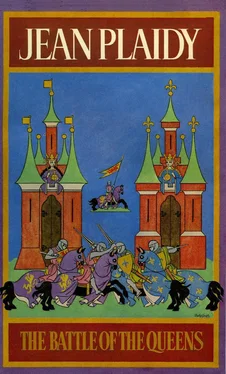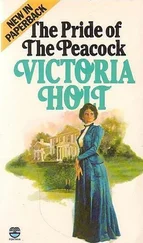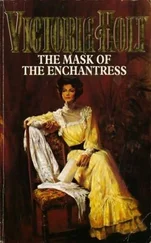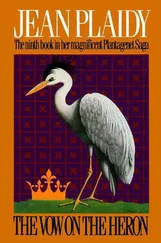Виктория Холт - The Battle of the Queens
Здесь есть возможность читать онлайн «Виктория Холт - The Battle of the Queens» весь текст электронной книги совершенно бесплатно (целиком полную версию без сокращений). В некоторых случаях можно слушать аудио, скачать через торрент в формате fb2 и присутствует краткое содержание. Жанр: Исторические любовные романы, на английском языке. Описание произведения, (предисловие) а так же отзывы посетителей доступны на портале библиотеки ЛибКат.
- Название:The Battle of the Queens
- Автор:
- Жанр:
- Год:неизвестен
- ISBN:нет данных
- Рейтинг книги:4 / 5. Голосов: 1
-
Избранное:Добавить в избранное
- Отзывы:
-
Ваша оценка:
- 80
- 1
- 2
- 3
- 4
- 5
The Battle of the Queens: краткое содержание, описание и аннотация
Предлагаем к чтению аннотацию, описание, краткое содержание или предисловие (зависит от того, что написал сам автор книги «The Battle of the Queens»). Если вы не нашли необходимую информацию о книге — напишите в комментариях, мы постараемся отыскать её.
The Battle of the Queens — читать онлайн бесплатно полную книгу (весь текст) целиком
Ниже представлен текст книги, разбитый по страницам. Система сохранения места последней прочитанной страницы, позволяет с удобством читать онлайн бесплатно книгу «The Battle of the Queens», без необходимости каждый раз заново искать на чём Вы остановились. Поставьте закладку, и сможете в любой момент перейти на страницу, на которой закончили чтение.
Интервал:
Закладка:
Hugh would never have treated her like this.
Hugh! How she longed to see him again. Would she be disappointed in him? What a bold man he had been! What looks! They and his great height had made a god of him. How different from John whose depravity had made him grow more and more hideous. John had hated Hugh – chiefly because he knew that she had loved him, but partly because Hugh was handsome and possessed of a nobility of character which made men respect him. The last time Isabella had seen Hugh was when he was chained hand and foot in a cart that was like a tumbril and drawn by oxen. He had been John’s prisoner then – for Hugh had been fighting on the side of Prince Arthur – and John’s one idea had been to humiliate the noble Hugh, and that Isabella should witness that humiliation. Foolish John, he did not realise that it was not Hugh she despised at that time but himself. John had known nothing of other people because he had been so deeply concerned with himself as the only person who could be of any importance. How delighted she had been when Hugh was released – because John thought it was to his advantage to do so. What a fool that man was. It did not seem to occur to him that Hugh might hate him as much as he hated Hugh. She often wondered how much Hugh had contributed to John’s utter defeat and loss of the French possessions.
And how she longed to see Hugh again.
Suddenly her mood of depression had passed and she was wildly elated.
Why not? It was feasible. It was the right thing to do.
She was thankful that William Marshal was in the castle. She would approach the matter tentatively the very next day. She spent a restless night and could scarcely wait to talk to the Earl.
‘It is with great relief and pleasure,’ she told him, ‘that I watch the King’s progress. I thank God that he is in such good hands. I think he is as different from John as anyone could be.’
The Earl looked well pleased.
‘Hubert de Burgh and I have the utmost confidence in Philip of Albini.’
‘And so have I. It occurs to me that I can serve no useful purpose in this country.
‘I trust the King will never forget that you are his mother.’
‘He will never do that. But I can safely leave his upbringing in capable hands and turn my attention to other members of my family who need me more. Richard is well looked after by Peter de Mauley at Corfe and I understand that Roger d’Acastre is most excellent. My youngest daughters are as yet little more than babies, but my daughter Joan is betrothed and I believe it to be time that she went to the home of her betrothed where she will be brought up in his household as is the custom.’
The Earl nodded slowly. It was the custom of course for girls to be brought up in the country into which they would marry.
‘I believe,’ went on Isabella, ‘that she should leave without delay. She is seven years old – an age when a child’s mind begins to take shape. Do you agree with me, my lord?’
‘I do indeed.’
‘It will be necessary for her to make this journey in the care of someone who can be trusted.’
There was a short silence. The Earl was trying not to betray the hope which had come to him. He had consulted with Hubert de Burgh and they had agreed that the Queen would have to be watched. Mothers of kings who were minors could be tiresome; and there was no indication that Isabella was a meek woman who would listen to advice.
The Earl cleared his throat as though about to speak but Isabella spoke first. ‘My two sons are in good hands; my two young children are well cared for. It would seem, my lord, that since I am scarcely needed here, I should be the one to accompany my daughter.’
William Marshal tried not to sound too elated.
‘My lady,’ he said slowly, ‘the Princess Joan is indeed fortunate to have a mother who so cares for her welfare …’
‘Then you agree that I should be the one to accompany her.’
‘I think we should first ask the King if he would be prepared to let you go.’
She nodded gravely. ‘I think my son will want to do what is best for his sister,’ she said.
Her spirits were rising and she felt more excited than she had since she had heard of John’s death.
She took leave of the Earl and went to her bedchamber. She had to be alone.
‘Hugh,’ she murmured to herself. ‘What will you think of me? What shall I think of you?’
And the thought of going back to the scenes of her childhood, of being reunited with her old lover – now to be her daughter’s husband – filled her with a wild elation.
Chapter II
THE CHOSEN BRIDE
What joy it gave her to ride southwards through the fair land of France, and the nearer she came to the Angoumois – the land of her inheritance – the happier she grew. It was seventeen years since she had ridden in those lanes and forests – an only child and the heiress of the Angoumois, the petted darling of her parents’ household. Hugh, eldest son of the reigning Count de la Marche, had seemed a worthy bridegroom for her; and when she had been taken into his father’s household she had thought so too.
The smell of the woods – different from those of England, she assured herself, the golden light in the air, the warmth of the sun … all these conjured up memories of those days of physical awakening when she had longed for marriage with Hugh and then had met John in the forest and been aware of a curious mixture of desire and repulsion while mingling with them was an ambition to wear a crown.
Her daughter rode beside her. Young Joan was apprehensive and that was understandable. A child seven years of age going to meet her bridegroom.
‘Is not the country beautiful, daughter?’ demanded Isabella. ‘Think! When I was your age I used to ride through these woods. You will spend your youth where I spent mine.’
‘But you did not stay here, my lady.’
‘No, but it is a joy to be back.’
Joan looked wistful. It was clear that the poor child was wishing she were in Gloucester. Too much had happened too quickly to enable her childish mind to adjust.
Isabella softened a little. ‘You are anxious, child. You need not be. You will be happy here, as I was. Have no fear of Hugh. I knew him well when I was your age and I can tell you this, there is not a more kind or gentle man in the whole world.’
‘My lady, how long will you stay with me?’
She sighed and smiled. ‘That, daughter, I cannot say. But I can promise you this: You have nothing to fear.’
And so they travelled down to Angoulême, in the dukedom of Aquitaine, once so proudly ruled over by the father of Eleanor, mother of John, a rich and fertile land watered by the sparkling Charente, extending from Poitou in the north to Périgord in the south, eastwards to Le Limousin and westwards to Saintonge.
Isabella talked to her daughter as they rode. ‘How different life was than in your father’s court. Here we assembled at night when the fires were lighted and the candles guttered and the troubadours took their lutes and sang about the beauty of ladies and the valour of their lords. It was gracious. Men were chivalrous. Ladies were treated with respect. Oh, my daughter, you are going to bless the day I brought you here.’
Joan was becoming influenced by her mother’s enthusiasm. The country was beautiful; the sun warmer than it was in England; and as they travelled through France they were welcomed in the villages through which they passed and spent their nights in inns or castles, and as they came south Joan found that her mother’s description of the singing of the troubadours was indeed true. She would sit, heavy-eyed with sleep, listening to the strumming of the lutes and the singing of the songs which so delighted Isabella.
Читать дальшеИнтервал:
Закладка:
Похожие книги на «The Battle of the Queens»
Представляем Вашему вниманию похожие книги на «The Battle of the Queens» списком для выбора. Мы отобрали схожую по названию и смыслу литературу в надежде предоставить читателям больше вариантов отыскать новые, интересные, ещё непрочитанные произведения.
Обсуждение, отзывы о книге «The Battle of the Queens» и просто собственные мнения читателей. Оставьте ваши комментарии, напишите, что Вы думаете о произведении, его смысле или главных героях. Укажите что конкретно понравилось, а что нет, и почему Вы так считаете.







